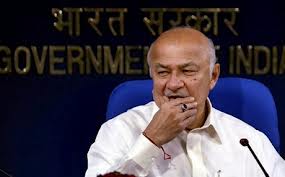
New Delhi, Feb 24: As dust settles on the 'Hindu terror' issue, government has said home minister Sushilkumar Shinde had not apologized for his controversial remarks but only expressed regret, which was accepted by the BJP.
"Well, it is regret. That is the word that has been used. I cannot change the language once it is used," parliamentary affairs minister Kamal Nath told Karan Thapar on 'Devil's Advocate' programme on CNN-IBN.
He was responding to questions on whether Shinde had expressed regret or tendered an apology for his remark made at a Congress meet in Jaipur that BJP was running camps for training Hindu terrorists.
Nath said while Shinde had used the word BJP, he has clarified that he did not mean any political organisation.
"If it has inadvertently or advertently been construed to mean that, he said I express regret," Nath said.
He also sought to make a distinction between Shinde's remarks and similar comments made by P Chidambaram during his tenure as home minister.
"The difference was Shinde used the word BJP and Mr Chidambaram had not used the word BJP," he said.
The minister admitted that Shinde's statement of regret was discussed at meetings he and Shinde had with the BJP leadership.
"There was a discussion and some text was worked out. Some text was discussed (with BJP). They said this was enough... they said he should say this. This was not a test like putting a comma and a fullstop," Nath said, describing the meetings with the BJP leaders.
He said the matter was discussed with the BJP leaders to avoid complications later.
"We did not want a statement where they said this is not that. They want something and the only way to cut it short was to discuss it and sort it out," Nath said.





Comments
Add new comment